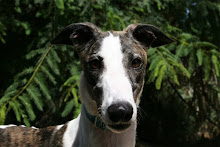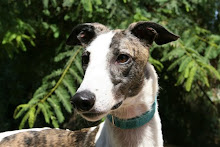Just because you like the appearance or personality of a particular dog does not mean that you will be able to tolerate each other. Every dog is an individual. If you bring a dog into your home who is not a very young puppy, it will already have established behaviors that may be irritating or destructive and require forbearance and patience on your part to correct. If your dog has had neglect--or heaven forbid, abuse--in its background, or spent time in a rescue or pound without much human interaction, you might see some irritating behaviors that are never totally extinguished.
There are also basic physical realities to each breed or mix. An English Bulldog is unlikely to become your jogging companion. A Dalmatian will probably not want to cuddle in your lap for hours of quiet reading or tv watching. Some dogs will never get very big. And some dogs will get very, very big indeed. I have heard from a reliable source that a major reason people get rid of their Irish Wolfhounds is that their Irish Wolfhound grew so big! Would you think less of me if I said that sometimes I'm tempted to think some people are too dumb to breathe?
One important thing to consider when choosing a dog is which of the seven groups it belongs to: Sporting, Hound, Working, Terrier, Toy, Non-Sporting, or Herding. But even this is not always helpful. English Bulldogs and Dalmatians both belong to the Non Sporting Group. Therein lies the greatest point of similarity between the two breeds.
On the other hand, dogs within the Sporting Group are more likely to have some commonalities: soft mouths, willingness to return thrown objects, physical endurance, relative toleration for inclement weather. It's no wonder that many family pets come from this group. My first dog, Lucky Penny--Penny to her friends--was a Cocker Spaniel, a member of the Sporting Group.
The Herding Group is another group whose member breeds have some predictable commonalities. The tendency to run circles around groups of people, or other dogs and animals is one. What a surprise! The most frequently mentioned candidates for Smartest Breed are from the Herding Group. That is because for generation upon generation, dogs who recognize and reliably obey subtle vocal or hand signals from their handlers are selected for breeding. Voila! Well bred herding dogs obey voice and hand signals more reliably than say--terriers, or sight hounds.
With this, dear reader, I shall pause and return to this subject later. Any time I discuss terriers and sight hounds, I am flooded with bitter-sweet memories, because two of the Dogs of My Life were terriers. Three, including The Survivor who is sleeping in the next room, were sight hounds. And one, the unforgettable Daphne, was a terrier-sight hound mix. Not an obedience champ in the group. But I wouldn't have wanted to miss a one of them.
Thursday, August 13, 2009
Subscribe to:
Post Comments (Atom)
.jpg)
.jpg)
.jpg)

No comments:
Post a Comment